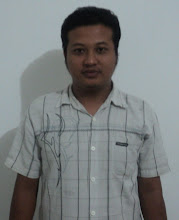 |
The majestic Thai elephant has long been a central element in Thai culture and has held a respected place in Thai history. A symbol of power and grace, the elephant was revered by the ancient kings.
Elephants have been prominently featured in Thai legend, literature, art and architecture, and during the reign of King Rama II, an image of the auspicious elephant, symbolic of the King, was featured on the flag.
 |
In daily life, as man and elephant depend on each other, the elephant is treated as part of the 'family'. The everyday life of the Thai elephant and its keeper is the central theme of the world-famous Surin elephant round-up held annually.
Province is the home of the Kui, who, for centuries, have tended to and trained elephants for use throughout Thailand. These handlers have great respect for their elephants.
The majority of elephant owners and mahouts in Thailand today are descendants of the "Kui" tribe (or "Suay" in Thai). They are thought to have migrated from Cambodia to settle largely in the northeastern provinces near the Cambodian border. Known for their expertise in capturing, domesticating and training wild elephants, the life-long relationship of the mahout with his elephant is an integral element of Kui culture, tradition and the way of life. The elephant is his companion and a family member.
 |
The Surin Elephant Round-up usually takes place on the third weekend of November. It is of recent origin, first held in 1960. The people of Surin were traditionally excellent at capturing elephants in Cambodia, then training them as working animals. Civil war in Cambodia and the elephant's decreasing economic importance has forced the elephant handlers (mahouts) to turn to entertainment to make a living.
The event consists of a series of shows displaying the strength and skill of the animals, such as football games and tugs of war.
The Elephant Breakfast is a small part of the festival and is held on the Friday morning. A procession of up to over 300 elephants (2005) start marching through Surin city from the railway station area toward the Elephant roundabout at the south end of the city on the Prasat road.
 |
The elephants carry dignitaries and also some tourists who dismount their steeds on arrival. Some elephants carry mahouts in authentic battle outfits from the Thai - Khmer - Laos battles. Intermingled with the elephant procession are local school children and teachers in traditional dress, dancing and playing music.
Once all the elephants have arrived then the banquet can begin, the tables of fruits are quickly cleared by the large team of elephants. Whatever leftovers there may be is not lost, as the local people take the leftovers to their own homes.
On the following morning (Saturday) the elephants and mahoots congregate at the Elephant Stadium to the south east of the city centre. Here the main show is performed culminating in a re-enactment of the battles of a past century. The show is repeated on Sunday morning.





No comments:
Post a Comment